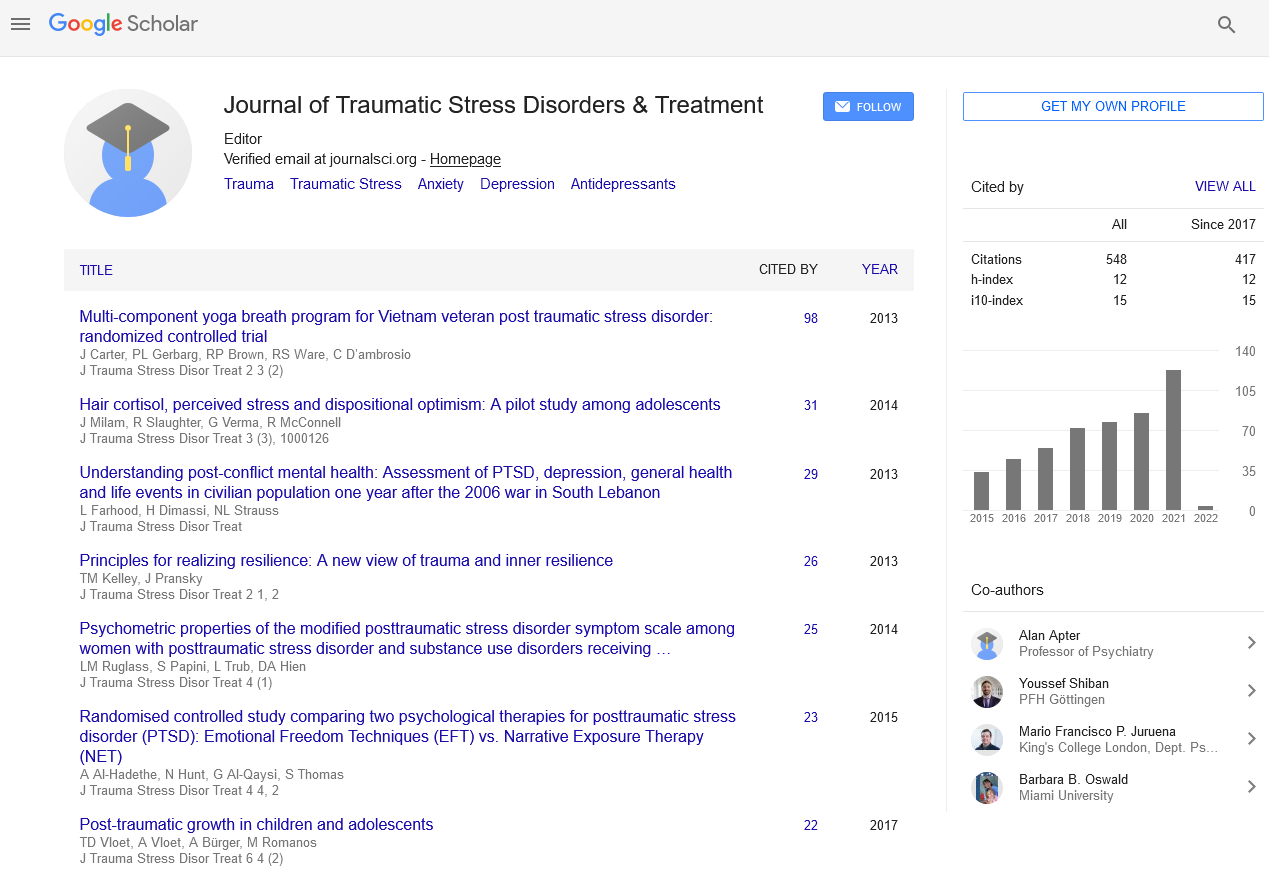Effectiveness of Georgian version of MoCA for cognitive screening in Multiple Sclerosis
Nazibrola Botchorishvili Nina Mikeladze Ana Dzagnidze Irine Khatiashvili Nino Mikava1 Mariam Kapianidze and Marina Janelidze
Simon Khechinashvili University Hospital, Georgia
Tbilisi State Medical University, Georgia
: J Trauma Stress Disor
Abstract
Introduction: Cognitive impairment occurs in 40-65% of patients with multiple sclerosis (MS). Studies have clearly shown that individuals with cognitive decline are at greater risk for employment problems. Those with moderate to severe cognitive dysfunction also have difficulty with activities of daily living, may require personal assistance and experience problems in social situations. Because of the high incidence of cognitive impairment in MS and its potentially devastating consequences, periodic application of a brief, simple screening tests are important to timely identify the problem. The Montreal Cognitive Assessment (MoCA) assesses multiple cognitive domains and can be administered in less than fifteen minutes. Numerous studies have shown that compared to the Mini Mental Status Examination (MMSE), the MoCA is more sensitive screening tool. MoCA was recently translated into Georgian language. The aim of this study was to compare the effectiveness of MoCA and MMSE in detecting cognitive impairment in MS patients. Material and Method: 19 subjects with a diagnosis of relapsing-remitting MS (RRMS) based on the revised McDonald criteria and 20 age-matched healthy controls were recruited in this study. All participants were evaluated with MoCA, MMSE, Beck Depression Inventory (BDI) and neuropsychological testing. Results: Mean age of patients was 31,3±7,1, mean disease duration 4±2,5, mean EDSS 2,9±1,6. Mean MoCA score in patients and controls were 23,4 and 27,1, respectively. 6 patients revealed impairment in main cognitive domains according to neuropsychological testing. MoCA demonstrated 100% sensitivity and 71,4% specificity, whereas MMSE showed 16,67% sensitivity and 100% specificity. Conclusion: The study results suggest, that compared to MMSE, MoCA is more sensitive test and may be useful to detect cognitive impairment in MS patients. Key words: multiple sclerosis, MoCA, cognitive impairment.
Biography
Nazibrola Botchorishvili is a neurologist. She works at the department of neurology and neurosurgery in the university hospital in Tbilisi, Georgia. Currently she works on a PhD project, which involves evaluation of cognitive function in Multiple sclerosis.
Email: nbphosta@gmail.com
 Spanish
Spanish  Chinese
Chinese  Russian
Russian  German
German  French
French  Japanese
Japanese  Portuguese
Portuguese  Hindi
Hindi 
